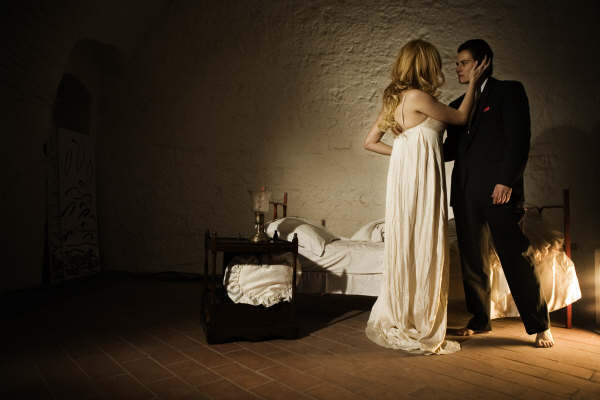Every visualisation of the selected videos to launch PAV will be for free until October 1, 2023, thanks to the generous contribution of the featured artists.
Nettuno (Rome, IT), July 3, 2015. It’s almost the sunset at the beach that used to be the theatre of war during the dramatic landing of Anzio and Nettuno during World War II.
A long white table waits in the sea; a rubber boat lands on the shore. The passengers join the banquet: an aged man, two young women and a few African men. They took their seat in front of a small and curious crowd. Each of the guests tells his odyssey. The African refugees share the stories of their long journey to escape from the unbearable living conditions in Nigeria, where they lost their relatives in violent criminal attacks, then to get to Libya, where they experienced the miserable conditions of the war and the underground prison detention. The lovely elder from Sardinia tells about his experience as an immigrant to Germany. He recounts the time when the Italians used to travel in masses after the last war, flooding the train stations with their cardboard luggage; a similar scenario recalling the past century exodus when the Italians used to embark to America. The story of the young woman born from a Sicilian mother and an African father reveals peculiar mixtures between different cultures in an unusual family story torn between dishonour and love.
At the end of the feast, everybody takes part in the ritual of the salt thrown in the sea. To remember the sisters and the brothers that couldn’t make it, and to restore the sea in the sea. This performance, documented live, involved elderly Italian migrants and refugees recently arriving in Italy willing to share their stories to the casual audience of the beach.
Concession: if you cannot afford to pay the full price, please send as us email.


We are processing your request.
In a few minutes we will notify you.
